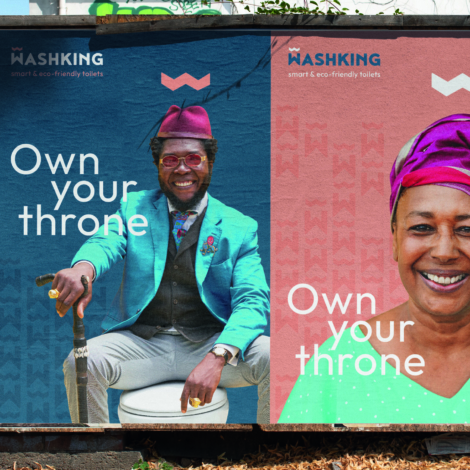Lindelani Xaba works with sanitation entrepreneurs to support them in scaling their businesses. Mr. Xaba is a water and sanitation engineer pursuing an MBA, and he brings that expertise to his role as Toilet Board Coalition Accelerator and Pipeline Manager. In this article, Mr. Xaba shares seven tips for engineers venturing into the sanitation business. His insights offer a path for aspiring entrepreneurs in this thriving industry.
Identify a problem that’s also a business opportunity
As engineers, identifying a problem and conceptualizing solutions is easy. However, not all problems represent a business opportunity. And not all product ideas actually solve real-world problems. Sometimes, the most elegant product, from a technical standpoint, will not turn into a profitable business simply because it is not solving a real problem.
So, the first thing to do is to define the problem. Who are the people affected? What is the impact? And is there a solution that can solve the problem to make life easier for the people involved? Simplicity is key. Make it as simple as possible from a user’s standpoint.
Research!
Now that we know the problem and we have a potential solution, we need to conduct market research. The goal is to explore the viability of the proposed solution. Establish who your target customers are going to be, and look into why these customers would buy your product. Will your target customers be willing to pay for it? Also, who would be your potential competitors in this space? What sets you apart?
Understand your customers’ needs. Understand the strengths and weaknesses of your solution as well as those of the products that exist in the market already. Identify potential problems with your product or service.
Ask yourself what brings you meaning
Determine why you want to work with your target customers. Approach this from a big-picture perspective. What brings you meaning? For example, why do you want to work in low-income or informal settlements. It could be because you’re passionate about improving the lives of the underserved. The reason why this is important is because the entrepreneurial journey is challenging, and it helps if you have a fundamental reason as to why you chose this path. This will be your guiding star.
Engage your target customers
Engineers sometimes make the mistake of thinking that just because a solution is functional it will gain automatic acceptance in the market. This is not necessarily the case. That’s why user feedback is so important. Conduct surveys to find out what improvements are needed for the product, what are pain points and what features need to be added or removed. Also, find out what your customers would be willing to pay for such a solution.
If you are working in low-income or informal settlements, it is of great importance to take note of the hierarchy in these communities. Understand the leadership structure and determine the appropriate point of contact. Knowing the right people can make customer engagement easier and help you avoid social and cultural pitfalls you might not otherwise see.
Analyze the finances (with some help?)
Now that we know who our customers are and what they are willing to pay for the solution, we can start to look at the profitability of the business. Look at the potential revenue of the business, what are the costs that are associated with providing the solution and when does the business break even?
Running such an analysis might not a strong competency for some engineers. Finding people who share your vision and bring skillsets that are different from yours is fundamental. You do not have to take on the world on your own!
Marketing, marketing, marketing!
This is another area that may not come naturally for an engineer. If no one knows about the work you do, or the product or service you provide, then you won’t have customers for your business. So, get your name out there. Create a logo, develop brand guidelines, create a website and social media pages. Share your content organically and set up paid advertisements.
These days there are so many low-cost options for businesses to market themselves. You essentially have the whole world to market to, and they’re all at your fingertips. This is another reason why you need people who share your vision and have different skillsets to yours.
Fail fast and fail forward
Find out what doesn’t work and fix it. Iteration is key. Also, do not shy away from pivoting, if needed. Do not waste your resources on something that doesn’t serve the business. With failure comes success. Believe in yourself, surround yourself with a supportive community and mentors to support and celebrate along the way.
And remember – the Toilet Board Coalition runs an Accelerator for sanitation entrepreneurs! We hope you’ll apply.
Learn more about the Toilet Board Coalition Accelerator for sanitation economy businesses.
About the author
Lindelani Xaba is a water and sanitation engineer based in Durban, South Africa. At the Toilet Board Coalition, he supports entrepreneurs to scale their sanitation businesses. He has led wastewater treatment prototype testing for which he was awarded the Sherlock Holmes Award for successfully investigating and troubleshooting multiple problems. He holds a BSc in Chemical Engineering and is enrolled in an MBA program. Outside of work, he enjoys golf-cart racing, skydiving and solitude.
Featured photo credit: WashKing, a member of the Toilet Board Coalition


Heartdely it impressed me